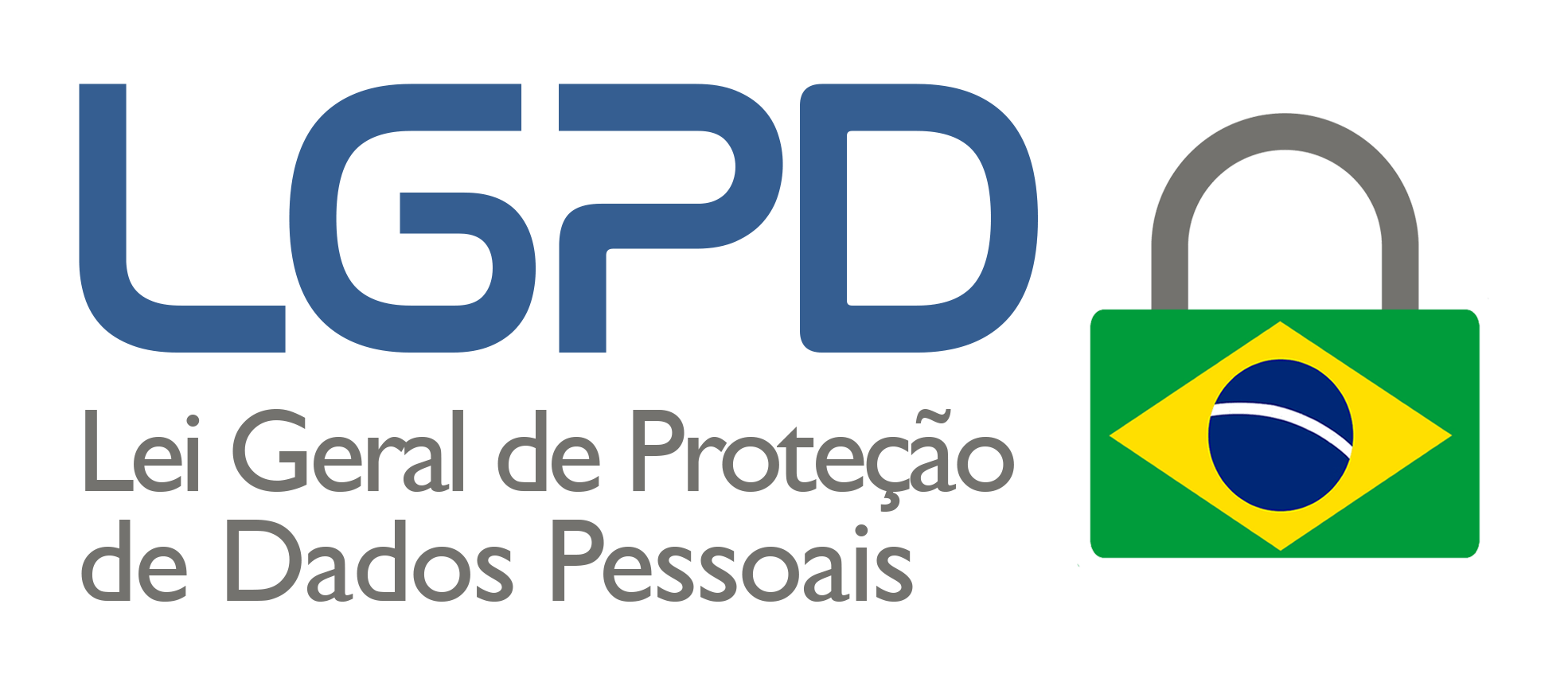March 29th, 2022
Brazil, Latin America outperform major global indices as emerging markets come into focus
March 14th 2022
Brazilian markets boom among top global markets, year to date
March 3rd, 2022 (Reuters)
Brazil trade surplus of $4 billion in February, the strongest performance for the month since 2017.
According to the Economy Ministry, exports surged 32.6% from February 2021 to $22.9 billion, benefiting from a 22.6% expansion in volumes and a 13.5% increase in prices. Imports rose 22.9% to $18.9 billion as a 30.9% rise in prices more than compensated for a decline of 2.5% in the volume of goods purchased by Brazil.
In the first two months, the country’s trade surplus reached $3.8 billion, jumping 125.4% from a year earlier.
The Economy Ministry said it expected a record trade surplus of 79.4 billion this year due to a decline in imports, amid more moderate growth in global trade. In the first two months, the country’s trade surplus reached $3.8 billion, jumping 125.4% from a year earlier. The Economy Ministry said it expected a record trade surplus of 79.4 billion this year due to a decline in imports, amid more moderate growth in global trade.
For 2022, the government’s expectations are for an increase in exports of 1.4% to $284.3 billion, while imports are expected to fall 6.6% to $204.9 billion, the ministry said. Forecasts call for more moderate growth in global trade this year.
In December, Brazil had a trade surplus of $4 billion, on exports of $24.4 billion and imports of $20.4 billion.
The biggest increase in imports in 2021 came from goods from the Mercosur trade bloc, rising 44.7%, followed by the United States at 41.3% and China at 36.7%.
Feb. 28th, 2022
Brazil’s Economy Minister, Mr. Paulo Guedes, Interviewed at Bloomberg.
Mr. Paulo Guedes told Bloomberg Television’s Shery Ahn that the government sees inflation falling this year from 10% to a target around 5%. He also talks about the war in Ukraine, and recovering from the Covid pandemic. See it all on the YouTube video below:
Brazil Forecasts Blockbuster Year for Global Investment Attraction, Trade in 2022
Closing Out a Successful and Impactful 2021, Brazil Looks Forward to Increasing Foreign Direct Investment (FDI) This Year Across Real Estate, Infrastructure, Stone and Startup Sectors, among Others.
News provided by Apex-Brasil,/PRNewswire/, on Jan 26th, 2022, 09:00 ET – Invest in Brazil – APEX and Buy from Brazil
On the heels of Brazil’s strong investment performance in 2021, Apex-Brasil has projected an even more significant increase in 2022, due to the country’s robust foreign investment attraction and trade promotion efforts. In the coming year, foreign investors will have the opportunity to bid in 139 Brazilian auctions – a 144% increase from the 57 public auctions held in 2021 – in sectors such as transportation, mining, energy and more. According to the projections of the federal government and Apex-Brasil, Brazil’s 2022 portfolio of auctions and concessions will be the largest from any other country in the world, generating an estimated USD $74.4 billion.
TRADE BALANCE – The Brazilian trade balance ended 2021 with a surplus of € 53 billion.
The value represents a growth of 21.1% compared to 2020 and surpassed the record of € 49 billion in 2017. Exports last year expanded by 34% to € 246 billion, and imports rose by 38.2% to € 192 billion. Thus, the trade flow, which includes exports and imports, reached € 439 billion, an increase of 35.8%.
Exports grew in terms of prices (28.3%) and quantities exported (3.5%) compared to the previous year. There was an increase in Brazilian exports, mainly to the United States € 27.22 bn. (44.9%), Mercosur € 14.85 bn. (37%), Association of Southeast Asian Nations – Asean € 16.90 bn. (36.8%), European Union € 31.9 bn. (32.1%) and China € 76.83 bn. (28%). In terms of products, there was an increase of 26.3% in exports of goods from the manufacturing industry, such as semi-finished steel (101.3%), fuel oils (43.7%), pig iron (36%), machinery and equipment for engineering and construction (63.7%) and passenger cars (20.8%). There was a 62.4% growth in sales of extractive industry products, including iron ore (72.9%) and oil (54.3%).
In addition, 22.2% growth in exports of agricultural products, mainly soybeans, with a 35.3% increase. In imports, there was a growth in prices (14.2%) and imported quantities (21.8%) in 2021. Imports grew mainly from Mercosur € 15.2 bn. (44.7%), the United States € 34.4 bn. (41.3%), China € 41.7 bn. (36.7%), Association of Southeast Asian Nations – Asean € 8.3 bn. (31.1%) and European Union € 33.5 bn. (26.2%). EU, US and China have all around 18-20 % share of the Brazil’s imports. There was an increase in demand for inputs and intermediate products of 45.7%.
Among them, agricultural inputs, electronics and petrochemicals. There was growth of 87.1% in imports of fuel and 89% of electricity. In addition to 77.1% in the importation of medicines, specifically vaccines. For 2022, the Economy Ministry is projecting a trade surplus of € 70 billion, which would be 30.1% more than 2021. Besides that, the United Nations Agency for Trade and Development (Unctad) estimated that Brazil in 2021 received € 51 billion in foreign direct investment (FDI), more than twice the € 24 billion in FDI for 2020. Foreign companies in Brazil reinvested € 21 billion of their profits last year and parent companies provided € 3.5 billion in inter-company loans.
WHAT DOES THE YEAR 2022 LOOK LIKE?
According to Goldman Sachs, the year 2022 should be marked by the continued recovery of the service sector in Brazil, as more than 80% of the population is already fully vaccinated (3 doses, entering the 4th dose round). The services sector has its highlights too, such as health and education – less affected by interest rates -, supposed to guarantee growth alongside the IT and agribusiness. It would all boost the GDP in 2022.
The industrial sector, greatly affected during the pandemic, predicts that the increasing normalization of inventories and the supply of global production chains will benefit the vehicle, machinery, equipment, and civil construction sectors.
IPEA (Institute of Applied Economic Research) predicts that Auxílio Brasil and the increase in the employed population may positively influence demand, which may also be stimulated by the expected increase in investments in infrastructure. In the second semester, when inflation is expected to have eased the cost of companies and for the families. The small business service companies (restaurants, beauty salons etc) followed by other travelling related ones (hotel, flight companies etc) will be the main ones responsible for the increase in the economic activity. IPEA estimates that the basic interest rate will rise from 9.25% per year at the end of 2021 to 11.75% per year at the end of 2022. Inflation, which affected most countries, should remain high in the projected period.
The expectation for the Broad National Consumer Price Index (IPCA) in 2021 went from 9.8% to 10%, while for the National Consumer Price Index (INPC) it rose from 10.1% to 10.2%. For 2022, the projections for the IPCA and the INPC were maintained at 4.9% and 4.6%, respectively.
The year 2021 was one of recovery for the job market, after the strong blow registered in the previous year. The unemployment rate, which started the year at 14.5%, reached 12.1% in October, according to the IBGE (Brazilian Institute of Geography and Statistics). On the first quarter of 2022, the country may have an unemployment rate close to the numbers from the beginning of the pandemic, according to experts from the Ibre-FGV (Brazilian Institute of Economics of Fundação Getulio Vargas). However, from the first quarter of 2022 onwards, labor income should remain very low, suffering from the effects of inflation and nominal readjustments below the price hike. On the fiscal policy side, fiscal consolidation will be a major challenge in the 2022-26 forecast period, as political will to downsize the bloated public sector is lacking – which is expected to be one of the big themes of the 2022 elections since the election race should take place in the midst of a year of worsening public accounts.
The National Confederation of Industry (CNI) is optimistic that in the second half of 2022, some of the recent problems will be alleviated.
Inflation is expected to decelerate throughout 2022, allowing the mass of real income to raise in response to continued growth of the number of people employed. It is also expected the normalization of the supply of inputs and raw materials and that the Brazilian Real exchange rate, still quite undervalued, will boost Brazilian exports. In addition, economic activity should benefit from the normalization of demand for services provided to families, a segment that is still below the pre-pandemic level. It should also be driven by some industrial sectors, especially those linked to investments, such as the civil construction and capital goods chain, which should still have their production level stimulated by orders and projects from 2021.
Brazil offers a unique set of business opportunities for Finnish companies across different industries. Being the ninth largest economy in the world, rich in natural resources, with a 220 million population, the country has a huge internal consumer market that present commercial opportunities for foreign businesses looking to access new clients. There are several Finnish companies doing business in Brazil in a variety of industries, such as energy, networks, pulp and paper, chemicals. This alone should be an example that Brazil is a country of extraordinary potential in many sectors. Besides that, Brazil and Finland have a very positive relationship and have a series of cooperation agreements in areas such as aviation, defense, science and technology, so companies that present innovative, efficient and cost effective solutions can largely benefit from the local opportunities.
INVESTING IN BRAZIL : SECTORS TO FOLLOW AND INVEST IN 2022
Foreign investors will also face a favorable business environment in Brazil in 2022 and beyond. To ensure this, the Brazilian government has introduced a number of reforms, which, in 2021 alone, helped decrease the cost of doing business in Brazil by USD $77.3 billion. Some of the most successful reforms include: the Sanitation Law, which ended restrictions on private sector investments for sanitary projects; Integrated Urban Licensing, which has significantly cut time and costs associated with obtaining a work permit in Brazil; and the New Highway Concession Design, which has introduced an improved risk sharing and incentives framework for new highway development. Upcoming reforms planned in 2022 include the Public-Private Partnership (PPP) Law, Cabotage Law, and Electricity Law – all of which are planned to continue opening opportunities and easing cross-border investing in Brazil.
- Infrastructure: According to a United Nations Conference on Trade and Development (UNCTAD) report, infrastructure was the Brazilian sector that attracted the most confidence from foreign investors last year, with a 53% increase in the number of financing proposals. In 2022, investors should continue to look forward to infrastructure opportunities in areas like transportation. For example, due to a push from the federal government to privatize transportation concessions specifically, in the coming year there are 25 airport auctions, nine highway auctions, and 18 port auctions scheduled in Brazil.
- STARTUPs: Brazil has the largest startup accelerator program in Latin America, with over 2,200 successful accelerations. Furthermore, the country also has the 2nd largest digital transformation program for small and medium sized enterprises (SMEs) in the world, with more than 50,000 companies supported in their digitization efforts since 2020. As a result, from January through October 2021 alone, Brazilian startups raised a record USD $6.4 billion in venture capital funding, tripling the amount raised pre-pandemic in 2019.
- TECHNOLOGY ON-GOING OPPORTUNITIES: In the digital transformation era, there is now plenty of room – even for several competitors – to share the opportunities for production improvement and automation spread across verticals and niches. The immense volumes involved make it profitable, even for technologies that may not fly in other countries.
- E-COMMERCE : Throughout the year 2021, the pandemic has pushed e-commerce to a much quicker raise, led to the temporary closure of physical businesses. Added to this was the fact that many consumers chose to protect themselves from possible exposure to the contamination. As a result, the number of purchases made through digital channels has skyrocketed, strengthening digital commerce. Hence, as new consumer and new businesses entered this market, e-commerce performance is likely to keep growing very fast. In addition, e-commerce will continue to grow in the new year. Shoppers have migrated from physical stores to online shops and are continuing to do so. Worldpay from FIS has estimated that e-commerce in Brazil is set to increase 56% by 2024.
- FINANCIAL SERVICES: Companies in the financial sector usually present good results. The highlight goes to the big banks, which usually report profits in the billions and have total assets that add up to trillions. Brazilian international FinTechs on the rise. According to the International Compensation Bank, 50.5% of FinTech businesses out of the whole of Latin America are concentrated in Brazil. In 2021, US$500 million was invested in FinTech in the country, and Brazil received 68% of all funding in LatAm. Also, Brazil ranks as the fifth-largest internet and mobile device penetration globally. The startup movement in Brazil has gained international attention, offering excellent potential for local and foreign businesses.
The largest unicorns in LatAm are also from Brazil: Nubank, C6 Bank, Nuvemshop, Wildlife Studios, and Loft, just to name a few.
PagBrasil is a leading PSP in the country, and has been on the market for 20+ years. During this time, it has supported numerous cross-border merchants to expand their business in Brazil, offering alternative payment methods such as Boleto Flash®, Débito Flash™, PagBrasil Pix, and many others. Read more: PagBrasil in a 2021 Retrospective.
Pix. What to expect from Brazil newest payment method ?
Pix celebrated its first anniversary in November and has reached over 100 million users. The technology developed by the Central Bank of Brazil quickly became one of Brazilians’ favorite real-time payment methods and has become the world’s fastest-adopted instant payment system. According to the Central Bank of Brazil, new features will be implemented in 2022, such as automatic charges, automatic recurring payments, and contactless payments are some of the features predicted to be embedded in Pix along 2022. For digital businesses operating in the country, it means broadening payment methods offered to their customer and boosting sales revenue.
The growth of new niches
The consumer’s behavior has changed since the beginning of the pandemic. People have become more confident to shop online and the market has evolved and adapted itself , now open to new opportunities.
Niches that have significantly increased in the last couple of years are wellness and health, pet care, e-learning, gaming, CBD, and SaaS, among others. For instance, the gaming market in Brazil is expected to grow approximately 5.3% in 2022, set to reach US$1.84 billion. The industry is enormous: more than 70% of Brazilians play games online, and it is predicted to grow more than music and video streaming.
The same goes for the e-learning niche. Brazilians are choosing to get educated from the comfort of their homes, which will make the industry exponentially rise 18% from 2021 to 2025.
2021/2022 Structural Reform Priorities
- Social protection: Increase the effectiveness of social benefits
- Education and skills: Enhance equity and outcomes in education and professional training
- Competition and regulation: Reduce barriers to competition and trade
- Tax system: Reduce distortions in the tax system
- Environmental policy: Preserve natural assets and halt deforestation
Also see below the COVID-19 high vaccination level evolution in Brazil (latest numbers, real-time), and the already imense decrease of the contamination.
WHO – World Health Organization Official site
Here is an interesting video compilation, a complete summary largely covering a variety of geographical, cultural, Economical and historical interesting facts about Brazil. It would probably make you better understand Brazil, its challenges and its potential. Enjoy ! :
See below some of our suggested big on-going opportunities:
Always count on MEREGE Ltd as you trusted partner in Brazil, to reach out to the right people at the right time, properly building your soft landing in the country, not only through the Business Development approaching angle, but also from the Legal, Regulatory and Accountant perspectives.




